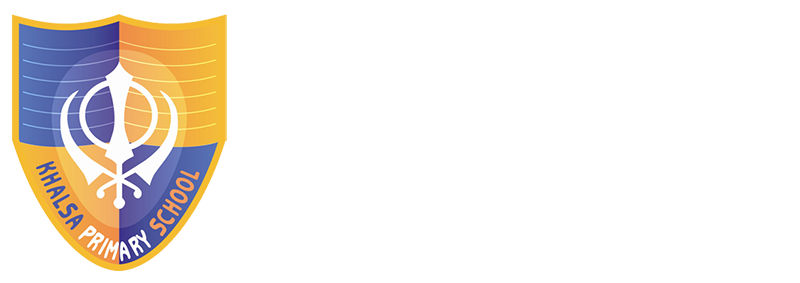Writing
OUR ASPIRATION FOR EVERY LEARNER:
At Khalsa Primary School we believe that writing is an essential skill and the ability to write with confidence and accuracy is a tool which will support a child through life. We strive to help our children develop into articulate and imaginative communicators, who are well- equipped with the basic skills they need to become life- long learners. We aim to ensure all of our children develop a genuine love of language through a text- based approach.
It is our intent that every child develops a progressive understanding of grammatical conventions, the way in which punctuation aids understanding and how to apply spelling rules. It is also our aim that all children have a joined, legible and increasingly efficient handwriting style.
WHAT WE DO TO ACHIEVE OUR ASPIRATIONS:
The pupils at our school are taught English through the Literary Curriculum. The Literacy Curriculum, designed by the Literacy Tree, is a book-based approach to the teaching of Primary English that places children’s literature at the core.
They are based on a wide range of high quality and significant children’s literature chosen to engage, challenge and support children to be critical readers and confident and informed writers.
All National Curriculum requirements of grammar, spelling, vocabulary, literary language and composition are embedded leading towards a variety of purposeful and exciting shorter, longer and extended writing outcomes where the audience and purpose is clear.
Spelling seeds within the ‘Literacy Tree’ complement the Literacy Curriculum by providing weekly, contextualised sequences of sessions for the teaching of spelling.
The objectives and spelling words match the Literacy Tree text being covered to make for purposeful application as well as including coverage from the phonics and spelling elements.
Writing is taught on a daily basis through a structured writing sequence. In daily writing sessions, children are taught different skills with an aim to develop a child who writes with accuracy, confidence and increasing creativity.
The following opportunities are provided through each writing unit:
- Opportunities to participate in drama & spoken language activities
- Exploring the features of different text types and modelled examples (what a greater depth piece looks like)
- Handwriting practise
- Vocabulary practise
- Shared writing (modelled expectations)
- Discrete Spelling, Punctuation and Grammar lessons
- Independent writing
- Planning, drafting, editing, up-levelling and publishing
WHAT WE DO TO MEASURE OUR SUCCESS:
Children leave Khalsa Primary School as happy, confident writers, who have the key skills and knowledge necessary for the next stage of their learning.
- The subject lead ensures that the National Curriculum requirements are met
- Pupil outcomes are monitored through deep dives, where evidence is gathered in the following ways: pupil voice interviews, book scrutinies, drop- ins, discussions with staff.
- Assessing children’s knowledge of key component learning as set out within schemes of work
- Assessing children’s understanding of grammatical vocabulary and rule
- Summative assessment of grammatical knowledge and spelling using Cornerstone tests (3 x per year)
- Moderation and scrutiny of pupil’s books and professional dialogue between teachers to assess the quality of children’s learning
- Sharing good practice among staff
- Marking of written work in books against the school’s marking policy
- The writing lead identifies clear next steps, which are determined by a cycle of monitoring, evaluating and reviewing
- Teacher assessment of writing using independently written pieces to provide evidence of national curriculum skills and understanding
- Monitoring of progress from year to year ensuring pupils remain ‘on track’ from their starting point
